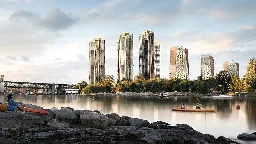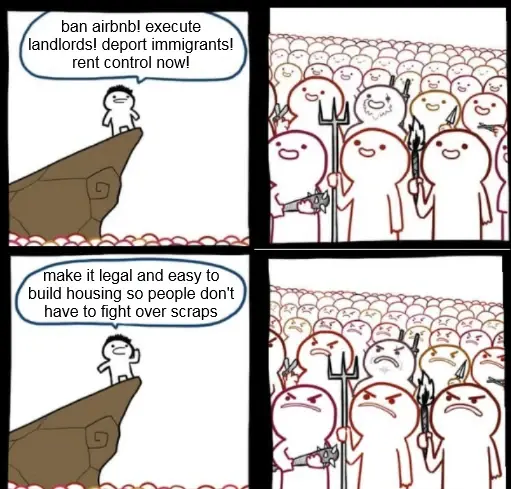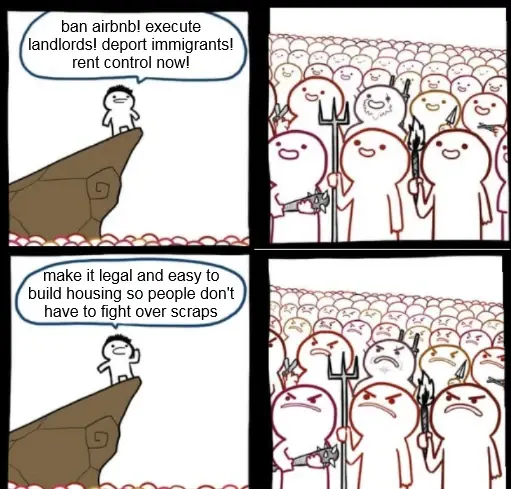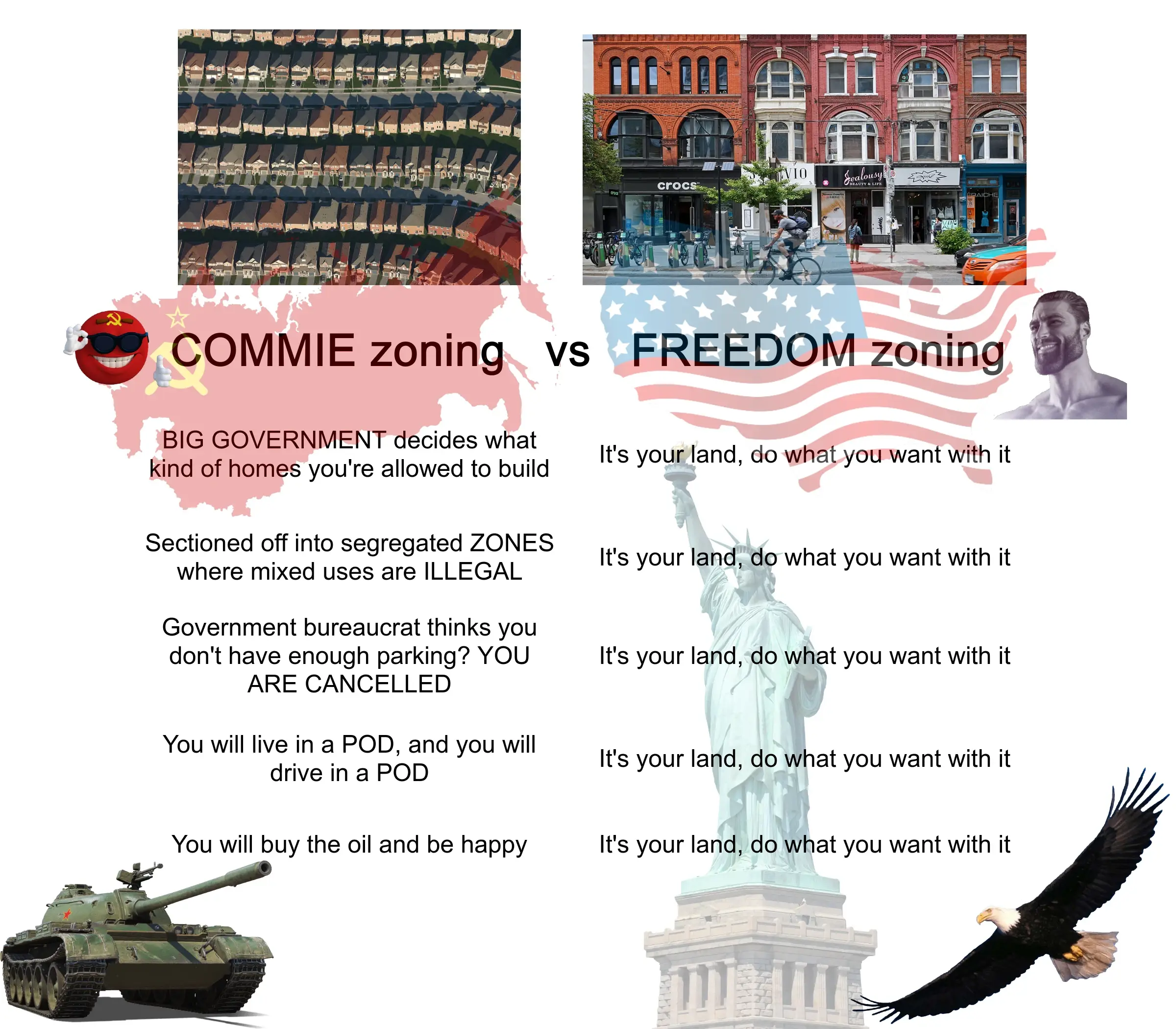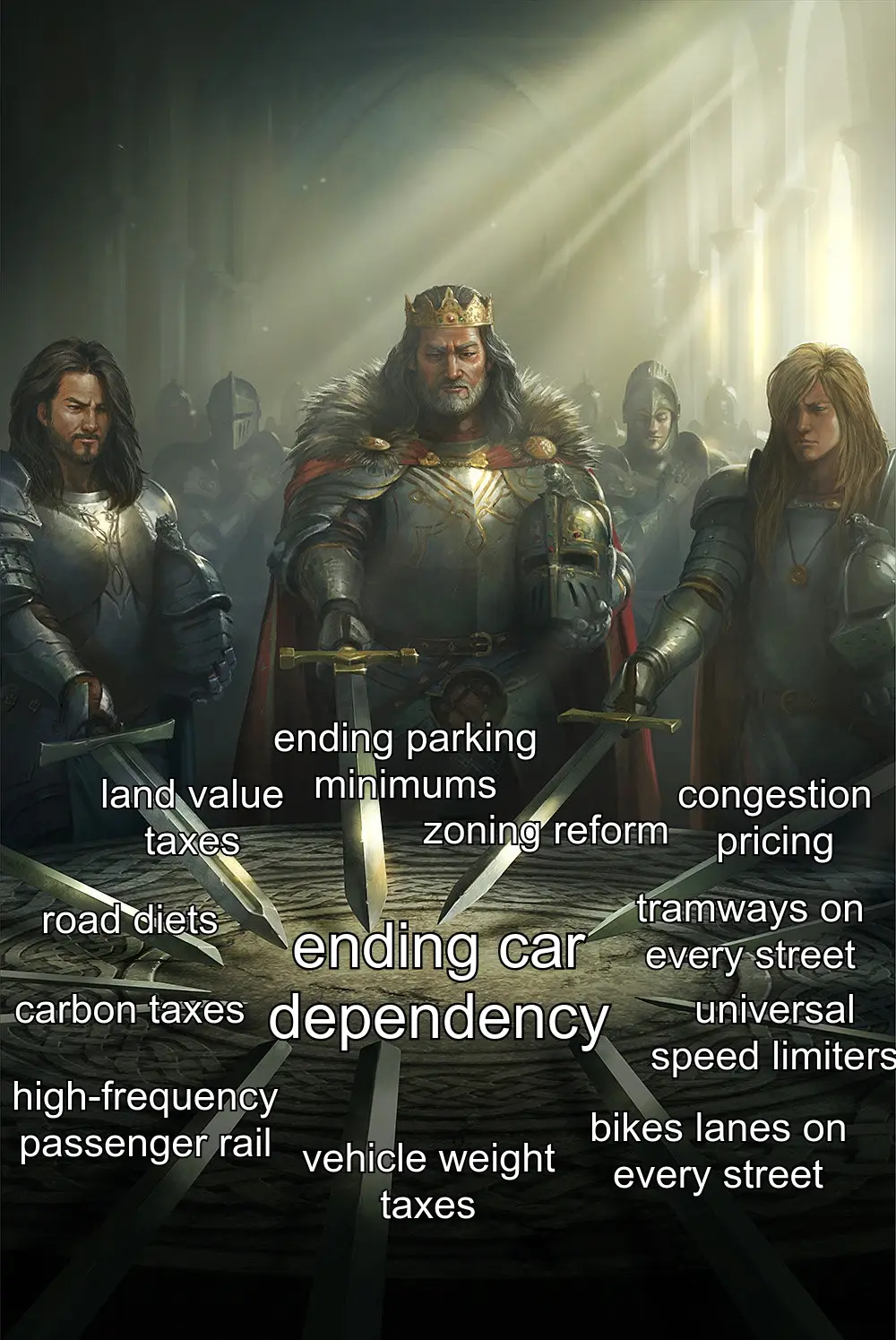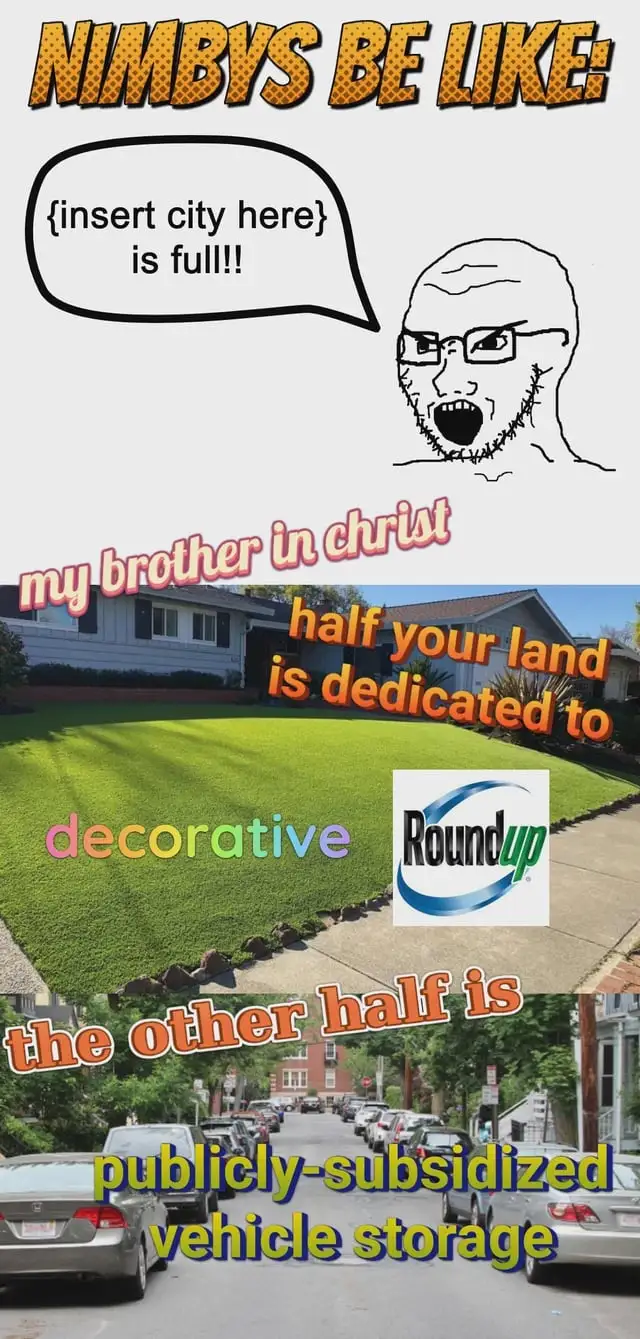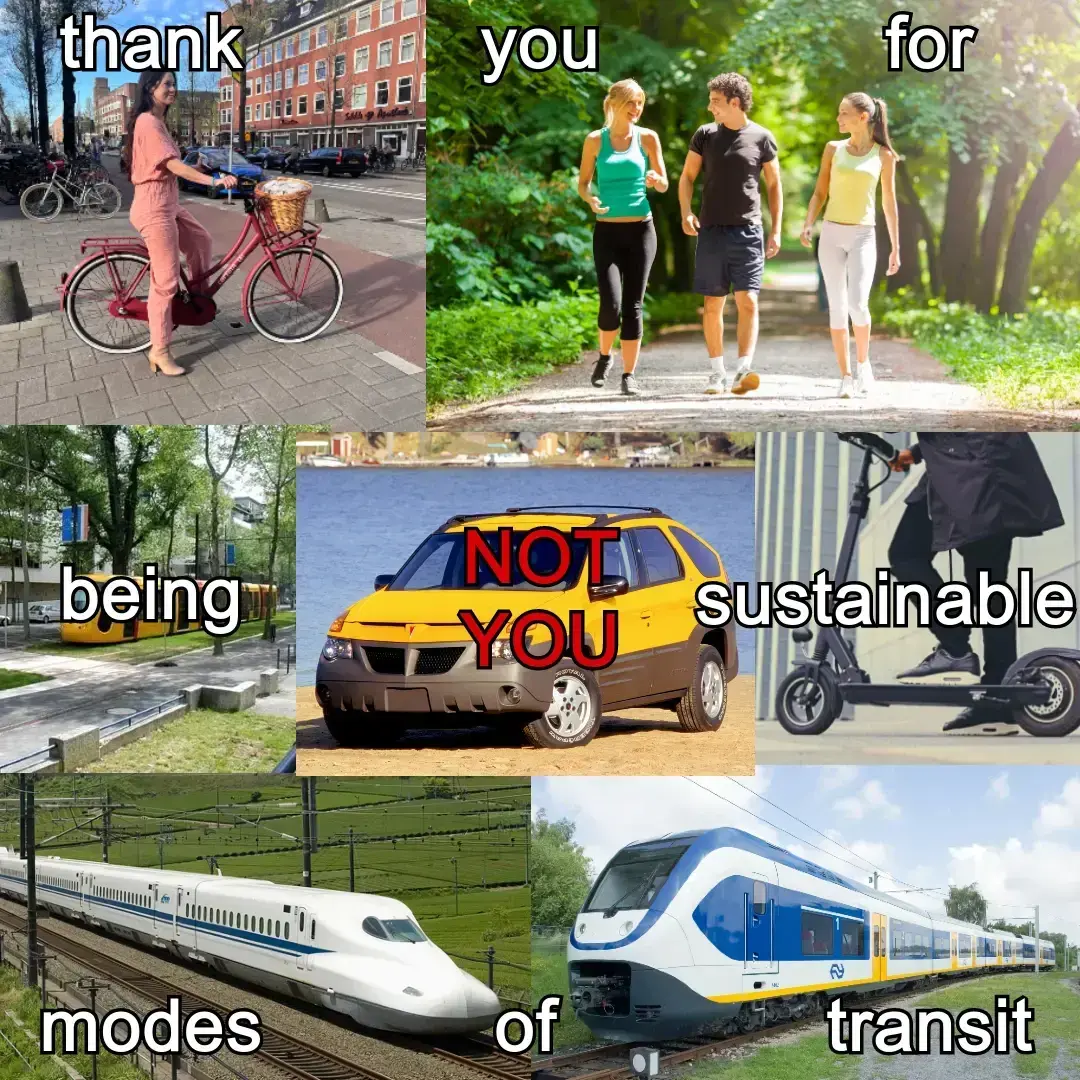 Fried_out_Kombi @lemmy.world
Fried_out_Kombi @lemmy.world embedded machine learning research engineer - georgist - urbanist - environmentalist
Market-rate, as a term, just means that it's governed by supply and demand and not externally subsidized. The rest of the text describes how loosening zoning laws spurs housing construction which helps with affordability.
The idea is that, if enough housing gets built, the market rate lowers. For instance, my city Montreal has a lower market rate than, say, San Francisco or Vancouver. Why? Higher supply and lower demand.
Or an even better example: Tokyo. Most populous metro area in the world, but it's also stupidly easy to build apartments and other dense housing by right. The result? The "market rate" for housing in Tokyo is remarkably affordable, even to a minimum wage earner:
Two full-time workers earning Tokyo’s minimum wage can comfortably afford the average rent for a two-bedroom apartment in six of the city’s 23 wards. By contrast, two people working minimum-wage jobs cannot afford the average rent for a two-bedroom apartment in any of the 23 counties in the New York metropolitan area.
...
In Tokyo, by contrast, there is little public or subsidized housing. Instead, the government has focused on making it easy for developers to build. A national zoning law, for example, sharply limits the ability of local governments to impede development. Instead of allowing the people who live in a neighborhood to prevent others from living there, Japan has shifted decision-making to the representatives of the entire population, allowing a better balance between the interests of current residents and of everyone who might live in that place. Small apartment buildings can be built almost anywhere, and larger structures are allowed on a vast majority of urban land. Even in areas designated for offices, homes are permitted. After Tokyo’s office market crashed in the 1990s, developers started building apartments on land they had purchased for office buildings.
https://www.nytimes.com/2023/09/11/opinion/editorials/tokyo-housing.html
I've never met a person actually making that argument, though. I'm certainly not advocating removing building safety codes, only the NIMBY bullshit like exclusionary zoning that was literally designed to keep people of color far away from white people. Even the opening paragraphs of Wikipedia page for the YIMBY movement say it's primarily in favor of removing things like exclusionary zoning and parking minimums:
The YIMBY movement (short for "yes in my back yard") is a pro-housing movement[1] that focuses on encouraging new housing, opposing density limits (such as single-family zoning), and supporting public transportation. It stands in opposition to NIMBY ("not in my back yard") tendencies, which generally oppose most forms of urban development in order to maintain the status quo.[2][3][4]
As a popular organized movement in the United States, the YIMBY movement began in the San Francisco Bay Area in the 2010s amid a housing affordability crisis and has subsequently become a potent political force in local, state, and national[5][6] politics in the United States.[7][8]
The YIMBY position supports increasing the supply of housing within cities where housing costs have escalated to unaffordable levels.[9] They have also supported infrastructure development projects like improving housing development[10] (especially for affordable housing[11] or trailer parks[12]), high-speed rail lines,[13][4] homeless shelters,[14] day cares,[15] schools, universities and colleges,[16][17] bike lanes, and pedestrian safety infrastructure.[3] YIMBYs often seek rezoning that would allow denser housing to be produced or the repurposing of obsolete buildings, such as shopping malls, into housing.[18][19][20] Cities that have adopted YIMBY policies have seen substantial increase in housing supply and reductions in rent.[21]
The YIMBY movement has supporters across the political spectrum, including left-leaning adherents who believe housing production is a social justice issue, free-market libertarian proponents who think the supply of housing should not be regulated by the government, and environmentalists who believe land use reform will slow down exurban development into natural areas.[22] Some YIMBYs also support efforts to shape growth in the public interest such as transit-oriented development,[23][24] green construction,[25] or expanding the role of public housing. YIMBYs argue cities can be made increasingly affordable and accessible by building more infill housing,[26][27][28]: 1 and that greenhouse gas emissions will be reduced by denser cities.[29]
Except that any housing, market-rate or not, does empirically help with affordability:
But what happens to rents after new homes are built? Studies show that adding new housing supply slows rent growth—both nearby and regionally—by reducing competition among tenants for each available home and thereby lowering displacement pressures. This finding from the four jurisdictions examined supports the argument that updating zoning to allow more housing can improve affordability.
In all four places studied, the vast majority of new housing has been market rate, meaning rents are based on factors such as demand and prevailing construction and operating costs. Most rental homes do not receive government subsidies, though when available, subsidies allow rents to be set lower for households that earn only a certain portion of the area median income.
Policymakers have debated whether allowing more market-rate—meaning unsubsidized—housing improves overall affordability in a market. The evidence indicates that adding more housing of any kind helps slow rent growth. And the Pew analysis of these four places is consistent with that finding. (See Table 1.)
We study the local effects of new market-rate housing in low-income areas using microdata on large apartment buildings, rents, and migration. New buildings decrease rents in nearby units by about 6% relative to units slightly farther away or near sites developed later, and they increase in-migration from low-income areas. We show that new buildings absorb many high-income households and increase the local housing stock substantially. If buildings improve nearby amenities, the effect is not large enough to increase rents. Amenity improvements could be limited because most buildings go into already-changing neighborhoods or buildings could create disamenities such as congestion.
Nah, I want infill development and densification. Currently, NIMBY land use policies such as single-family zoning make it literally illegal to build anything denser than a detached single-family house on the majority of urban land in the US and Canada, which leads to endless suburban sprawl, a severe housing crisis, and a near-complete dependence on cars.
Get rid of these NIMBY land use policies, and people will be able to build denser, less sprawling, more transit-oriented cities.
Today the effect of single-family zoning is far-reaching: It is illegal on 75 percent of the residential land in many American cities to build anything other than a detached single-family home.
That figure is even higher in many suburbs and newer Sun Belt cities, according to an analysis The Upshot conducted with UrbanFootprint, software that maps and measures the impact of development and policy change on cities.
Plus, it's just a weird argument to be making that we should be just forcefully shipping homeless people out to Bumretch, Kentucky to live in a dilapidated shed. No jobs, no opportunities.
The places where housing is needed are cities. The places with jobs and opportunities. And the cities that are most expensive are the ones with the absolute lowest vacancy rates.
Additionally, why would we actually want zero vacancies? Vacancies are good for the average person. Vacancies mean you can shop for a new home or apartment without finding someone to swap units with you. Vacancies mean your landlord has a credible threat of vacancy if they demand too much in rent. Vacancies give power to renters and buyers. Why would any left-leaning person willingly -- much less gleefully -- take bargaining power away from renters and give it to landlords on a silver platter?
At this point, I'm half-convinced this "vacancy truth" rhetoric the person you're responding to is espousing is a psyop by landlords to protect their economic interests.
The thing is that red tape also applies to public housing, too. Those incentives are for municipalities to remove local land use policies such as SFH zoning, parking minimums (like Toronto, Montreal, and Vancouver all removed recently), policies which would apply to public housing projects, too. Removing these NIMBY land use policies is a necessary pre-condition for both public and private housing.
I only mention North America because the US and Canada are the only two countries I have lived in, and thus have the most intimate knowledge of how their urban land use policies work.
But even outside of North America, many places have some form of restrictive land use policy. In the UK, I know they have the council system, where there's a local council that has veto power over every single development. It may not be the same form as North American zoning, but the net effect on making it de facto illegal to build enough housing.
I'm also aware of many other European countries having strict land use policies that make it extraordinarily difficult if not impossible to build denser housing, hence why many European cities (cough cough Amsterdam) have ludicrous housing crises.
Japan is perhaps the most notable exception that I'm aware of. In the 1980s and 1990s, they had the mother of all real estate bubbles burst, which devastated their economy, and the lesson they learned was they needed to make it easier to build housing to avoid a similar thing ever again occurring. They made land use policies uniform and quite permissive at the national level, allowing people to build most housing by right in most locations. The result? Tokyo, despite being the most populous metro area in the world, is actually remarkably affordable, even to minimum wage earners.
If housing is expensive where you live, and most of the land is tied up in single-family homes, what's stopping people from just converting their homes into plexes, or straight-up selling to someone who will turn a couple single-family lots into an apartment complex that houses hundreds?
If you're anywhere in North America, chances are it's literally illegal to do so, because of restrictive zoning and other NIMBY land use policies that make it literally illegal to build enough housing in the places that need it most.
So the solution, then, is to make it legal and easy to build housing so people don't have to fight over scraps.
Ford government to table legislation to restrict bike lanes on city streets | Globalnews.ca
The transportation minister will table the new bike lane rules as part of his next major piece of legislation, which the government has said will focus on stifling congestion.
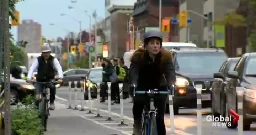
>The law, Global News has learned, is currently set to be titled the Reducing Gridlock and Saving You Time Act and could be presented when the legislature returns at the end of October. Primarily aimed at drivers, it will include new provincial requirements on bike lanes.
>...
>The specifics of the legislation have not been made public but sources told Global News said the government was considering restrictions on towns and cities removing existing lanes of traffic to create bike lanes.
Absolute clowns.
Some squatter who bought the rights to it for two twigs and a raspberry back when they were first selling off name rights 200,000 years ago
And things like vertical bifacial solar panels can work especially amazingly on grazing land that isn't suitable for crops.

Counter-intuitive as they may look, they actually have a number of benefits:
- The panels face east and west, meaning they generate peak power in the morning and evening, which corresponds to peak demand => less need for energy storage to bridge the gap between the mid-day peak in production from traditional PV and the aforementioned morning and evening demand peaks.
- The panels are vertical, which makes them easier and cheaper to maintain, as dust, snow, and rain naturally shed from their surfaces.
- The panels get less direct energy during mid-day, keeping their surfaces cooler. Turns out cooler solar panels are more efficient at converting light energy into electrical energy.
- The arrangement lends itself very naturally to agrivoltaics, which means you can derive more yields from a given piece of land and use less land overall than if you had segregated uses.
- The compatibility with agrivoltaics allows farmers to diversify their incomes streams and/or become energy self-sufficient.
Opinion | Yes In My Backyard: The Case for Housing Deregulation
It’s rare that one policy can solve a wide range of issues, but making housing more affordable just might be one of them.

Plus, why do people act like the "incumbent advantage" is some magical advantage? It's a cargo cult mentality, especially in this day and age where all the old "rules" about elections have gone out the window.
I mean, I remember the day where being twice-impeached and a convicted felon would be unrecoverable political death, yet here we are staring down the barrel of a possible second Trump term.
Biden is a historically unpopular president, who is behind in basically all polling in basically every key swing state, and who just had the mother of all "the emperor has no clothes" moments on national television, losing the confidence of his own base. Even Democratic congresspeople are calling on him to step down now.
There is simply no path forwards for Biden to win in November. He's cooked.
As for replacements, personally, I think Gretchen Whitmer is the best choice. Relatively young, good compromise candidate between the progressive and moderate wings of the party, current beloved governor of Michigan (key swing state!), competent technocrat, no significant political baggage, and made a name for herself protecting abortion rights in Michigan after SCOTUS overturned Roe v. Wade.
Is the GOP actually the ones wanting us to replace Biden at the moment? If anything, there's a very good reason to believe the GOP would want Biden to remain: he's a quite unpopular president for whom the overwhelming majority of Americans have concerns about his age and mental fitness. Further, he has a ton of political baggage, and is highly contentious amongst Democrats.
Personally, I genuinely think Gretchen Whitmer (with Pete Buttigieg as running mate) would be much more likely to win in November, at least according to post-debate polling from this leaked internal memo: https://puck.news/wp-content/uploads/2024/07/SUNDAY_Post-Debate_Landscape_2024_06_30__1_-1.pdf
Leaked internal memo with post-debate polling data showing a strong preference for Biden alternatives (especially Whitmer and Buttigieg) in key swing states: https://puck.news/wp-content/uploads/2024/07/SUNDAY_Post-Debate_Landscape_2024_06_30__1_-1.pdf

The problem is tons of free parking everywhere needlessly sprawls out our cities, makes people drive further, and makes actual green methods of transit (like walking, cycling, and electrified public transit) less viable.
In the long term, maintaining car dependency is fundamentally incompatible with addressing the climate crisis. Removing mandatory parking minimums is a necessary step towards ending car dependency.
Montreal becomes largest North American city to eliminate mandatory minimum parking spots
Montreal is the latest city to eliminate mandatory parking minimums, and the largest North American city to have done so.

cross-posted from: https://lemmy.world/post/16703609
Montreal becomes largest North American city to eliminate mandatory minimum parking spots
Montreal is the latest city to eliminate mandatory parking minimums, and the largest North American city to have done so.

Silvopasture is an ancient practice that integrates trees and pasture into a single system for raising livestock. Pastures with trees sequester five to 10 times as much carbon as those of the same size that are treeless while maintaining or increasing productivity and providing a suite of additional benefits. Livestock continue to emit the greenhouse gases methane and nitrous oxide, but these are more than offset by carbon sequestration, at least until soil carbon saturation is achieved.
Silvopasture also offer financial benefits for farmers and ranchers. Livestock, trees, and other forest products, such as nuts, fruit, and mushrooms, generate income on different time horizons. And help protect farmers from risk. The health and productivity of both animals and the land improve.
https://drawdown.org/solutions/silvopasture
Trees in silvopasture systems provide livestock with protection from sun and wind, which can increase animal comfort and improve production. Trees can provide shade in the summer and windbreaks in the winter, allowing livestock to moderate their own temperature. Heat stress in livestock has been associated with decreased feed intake, increased water intake, and negative effects on production, reproductive health, milk yields, fitness, and longevity.[4][5]
Certain tree types can also serve as fodder for livestock. Trees may produce fruit or nuts that can be eaten by livestock while still on the tree or after they have fallen. The leaves of trees may serve as forage as well, and silvopasture managers can utilize trees as forage by felling the tree so that it can be eaten by livestock, or by using coppicing or pollarding to encourage leaf growth where it is accessible to livestock.[1]
Well-managed silvopasture systems can produce as much forage as open-pasture systems under favorable circumstances. Silvopasture systems have also been observed to produce forage of higher nutritive quality than non-silvopasture forage under certain conditions. Increased forage availability has been observed in silvopasture systems compared to open-pasture systems under drought conditions, where the combination of shade from trees and water uptake from tree roots may reduce drought impacts.[1]
Exactly. I'm just trying to reframe dumb NIMBY policies like restrictive zoning and mandatory parking minimums as anti-freedom so as to try to get conservative NIMBYs to maybe be just a little less NIMBY.
Absolutely no one is seriously arguing we allow PFAS chemical plants next to kindergartens or that we remove all building safety codes. Just that restrictive zoning (and other NIMBY land use policies) is stupid, harmful, and we should get rid of it.
The right to a bicycle shall not be infringed
Opinion: Making housing more affordable means your home’s value is going to have to come down
Politicians are generally not in the business of saying things that voters don’t want to hear
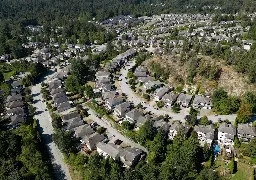
Non-paywall link: https://archive.is/fc2ci
just a frame, a chain,
two wheels, and grease
Kinda tempts me to photoshop a RAM PRIDE or FORD PRIDE ad for pride month
WOKE transit vs PATRIOT transit

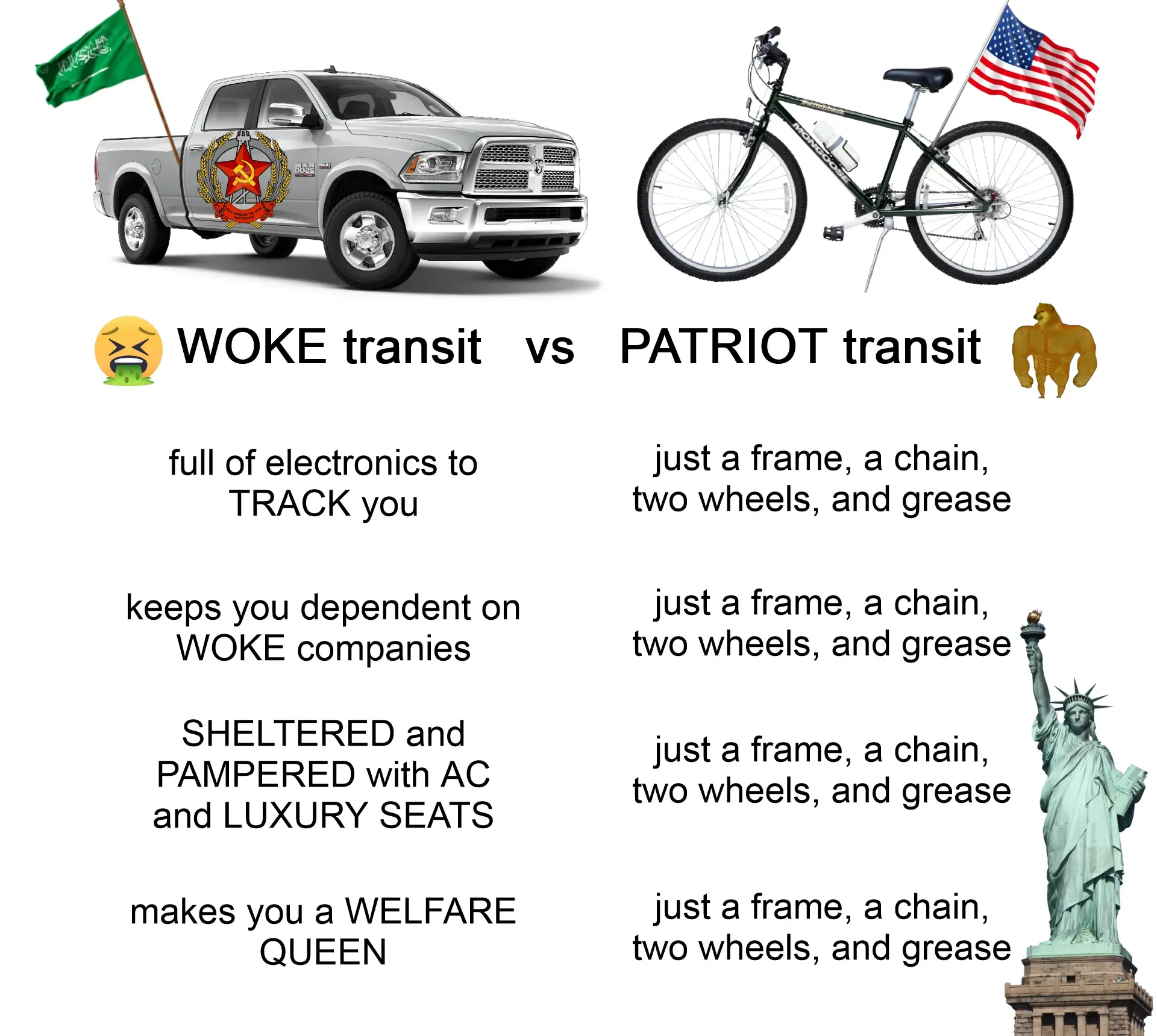
Me doing my part to portray car dependency as deeply unpatriotic. Which it kinda unironically is.
Eliminating 'parking minimums' helped U.S. cities. Could it work here? | CBC
Ottawa recently announced they're considering removing their mandatory parking minimums. For context, parking minimums are extremely arbitrary, based on pseudoscience, and are a key barrier to housing development.
Opinion: Lowering Canada’s high housing costs is also a recipe for raising our notoriously low productivity
Highly restrictive zoning in economically dynamic places not only raises housing prices there, it leads to lower economic output nationwide
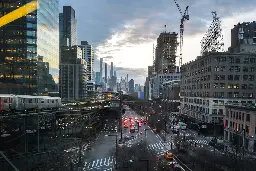
Non-paywall link: https://archive.is/J2cSo
Turns out the housing crisis is awful for the economy at large.
In France, the Future Is Arriving on a Barge
The Seine is becoming a test case for a European plan to cut carbon emissions by turning rivers into the new highways.

>The Seine is becoming a test case for a European plan to cut carbon emissions by turning rivers into the new highways.
Vancouver's new mega-development is big, ambitious and undeniably Indigenous - Macleans.ca
In B.C., Indigenous nations are reclaiming power and wealth for their own citizens—no matter what the neighbours think
